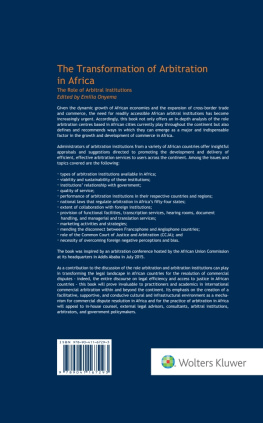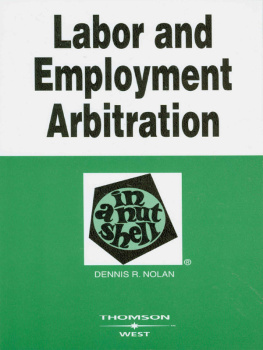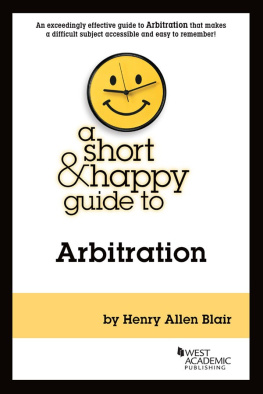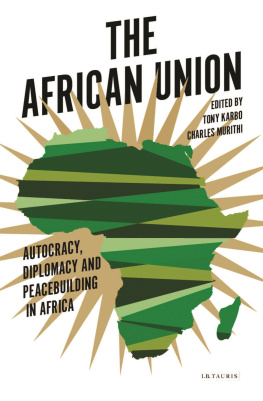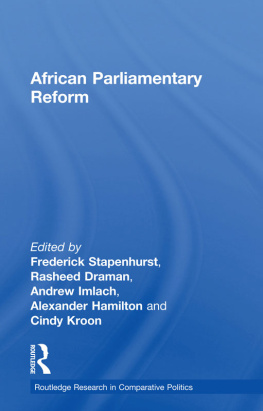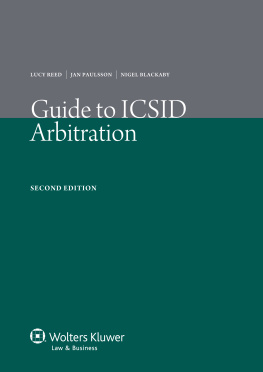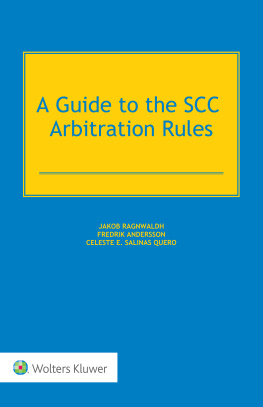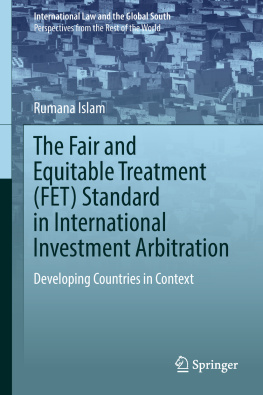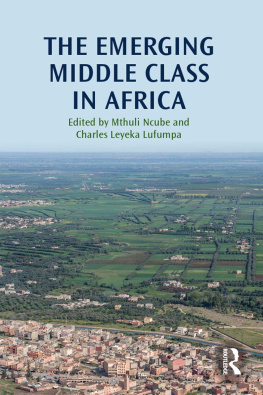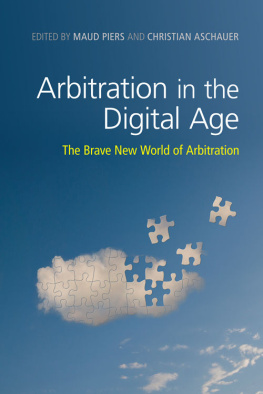The Transformation of Arbitration in Africa
Published by:
Kluwer Law International B.V.
PO Box 316
2400 AH Alphen aan den Rijn
The Netherlands
Website: www.wklawbusiness.com
Sold and distributed in North, Central and South America by:
Wolters Kluwer Legal & Regulatory U.S.
7201 McKinney Circle
Frederick, MD 21704
United States of America
Email:
Sold and distributed in all other countries by:
Turpin Distribution Services Ltd
Stratton Business Park
Pegasus Drive, Biggleswade
Bedfordshire SG18 8TQ
United Kingdom
Email:
Printed on acid-free paper.
ISBN 978-90-411-6729-3
Epub ISBN: 978-90-411-6730-9
2016 Kluwer Law International BV, The Netherlands
All rights reserved. No part of this publication may be reproduced, stored in a retrieval system, or transmitted in any form or by any means, electronic, mechanical, photocopying, recording, or otherwise, without written permission from the publisher.
Permission to use this content must be obtained from the copyright owner. Please apply to: Permissions Department, Wolters Kluwer Legal & Regulatory U.S., 76 Ninth Avenue, 7th Floor, New York, NY 10011-5201, USA. Website: www.wklawbusiness.com
Printed in the United Kingdom.
To all users of arbitration in Africa
Editor
Emilia Onyema is a senior lecturer in International Commercial Law at SOAS, University of London. She is a Fellow of the Chartered Institute of Arbitrators and qualified to practice law in Nigeria and is a non-practising Solicitor in England and Wales. Her teaching and research cover international sales law, law and development in Africa and international commercial arbitration. She has widely published in these areas and is the author of the book, International Commercial Arbitration and the Arbitrators Contract (Routledge, 2010). She holds a Ph.D. in international commercial arbitration from Queen Mary University of London.
Contributors
Mohamed Abdel Raouf is the Director of the Cairo Regional Centre for International Commercial Arbitration (CRCICA) and Associate Professor at Paris 1 Panthon-Sorbonne. He sits regularly as arbitrator in different jurisdictions; Member of the Governing Board of the International Council for Commercial Arbitration (ICCA) and the Board of the Arbitration Institute of the Stockholm Chamber of Commerce (SCC); Vice President of the International Federation of Commercial Arbitration Institutions (IFCAI), CEDR Accredited Mediator, and arbitrator listed in the Panel of Arbitrators of the Court of Arbitration for Sport (CAS). Mohamed holds a Ph.D. in international arbitration from the University of Montpellier I, France.
Narcisse Aka is the Secretary General of the Arbitration Centre of the OHADA CCJA and teaches the law of arbitration at the OHADA Higher Regional School of Magistracy (ERSUMA). He is the former Secretary General of the Court of Arbitration, Ivory Coast Chamber of Commerce and Industry. His publications include the Commentary on OHADA Uniform Act on Arbitration Law: Practice and Institutions in Africa.
Emmanuel Amofa is the Administrator of the Ghana Arbitration Centre since its inception in 1996. He qualified as a barrister in Ghana and actively practices various forms of commercial law and arbitration in Ghana and internationally. He authored the chapter on Ghana in Boseman Lise (gen ed.) Arbitration in Africa: A Practitioners Guide (Kluwer Law International 2013).
Duncan Bagshaw was the first Registrar of LCIA-MIAC and currently with Stephenson Harwood LLP in London. He is a barrister called to the Bar in England and Wales and a member of the Chartered Institute of Arbitrators.
Dalia Hussein is a legal advisor at the CRCICA and Lecturer at the Faculty of Law, Zakazik University. Dalia was an Administrative Prosecutor in Egypt, and Counsel in arbitration practice where she represented states and private parties in commercial and investment disputes before many institutions including CRCICA, ICSID and DIAC. Dalia holds a Matrise en Droit from Paris I Pantheon Sorbonne University, an LL.B. from Cairo University, an LL.M. in Private International Law and International Commercial Law from Paris II Panthon- Assas University, an LL.M. in Private Law from Cairo University and a Ph.D. in international arbitration from Cairo University.
Megha Joshi was appointed the first Executive Secretary/Chief Executive Officer of the Lagos Court of Arbitration (LCA) International Centre for Arbitration & ADR (ICAA) in November 2012. She has been responsible for implementing the institutional framework of the business, administration and engagement of all the stakeholders of dispute resolution services at the LCA. Megha graduated with a degree in Politics from Manchester University in 2004, after which she interned for United States Senator, Hillary Rodham Clinton in New York State and assisted the Democrats campaign in the 2004 Presidential elections.
Mahutodji Jimmy Vital Kodo is Technical advisor to the President of the OHADA, CCJA. He practised law in Paris and Nanterre (France) and served as Adjunct Professor at the University of Paris-Est Creteil, France. He holds law degrees from University of Abomey-Calavi, Benin (Masters Degree), University of Lille 2, France (LL.M.), and University of Paris-Est Creteil (LL.D). In 2008, Mr Kodo co-authored the Annotated OHADA Code, published by the Institut International de Droit dExpression et dInspirations Franaises (IDEF), and LApplication des Actes Uniformes de lOHADA, Publications de lInstitut Universitaire Andr Ryckmans 5 (Louvain-la-Neuve: Academia-Bruylant, 2010).
Kariuki Muigua holds Ph.D. in Law, LL.B, LL.M. (Env. Law, Nairobi), FCIArb (Chartered Arbitrator), Accredited Mediator, FCPSK, MKIM, Dip in Arb (UK) and is Advocate, Lecturer, Centre for Advanced Studies in Environmental Law and Policy (CASELAP), University of Nairobi; Chairperson, Chartered Institute of Arbitrators (Kenya Branch) 2013-2015.
Tolu Obamuroh is Associate General Counsel at the LCA. Tolu obtained his LL.M. degree at Columbia Law School in 2013. Tolu is a Weinstein Fellow and a doctoral candidate at Penn State Law School. His research is on pre-arbitration procedures and the expansion of arbitral powers in international arbitration.
Jean Alain Penda is the OHADAC Project Manager in the French West Indies and an Independent Consultant at Price Waterhouse Coopers LLP, London. Mr Penda holds an LL.B. from the University of Buea (Cameroon), an LL.M. in International Corporate and Financial Law from the University of Wolverhampton (United Kingdom), and a Ph.D. from the University of Basel (Switzerland) specializing in sales and commercial law. Penda was a Research Assistant for the Head of Private Law at the Faculty of Law, University of Basel and a Researcher for Global Sales Law, a project supported by UNCITRAL.
Bernadette Uwicyeza was the Secretary General of the Kigali International Arbitration Centre until 2015. She is currently the Centres senior Technical Advisor. She lectures at the University of Rwanda, Kigali Independent University and the Institute of Legal Practice and Development (ILPD). She holds a Law degree and a postgraduate Diploma in European Union Law from the University of Rennes I in France. She co-authored the book, New Law Governing Contracts in Rwanda (Rosenberg Publishers, Amsterdam 2013).
Summary of Contents
Emilia Onyema
PART I
General
CHAPTER 1
Arbitration Institutions in Africa
Emilia Onyema
PART II
Regional Arbitration Institutions in Africa
CHAPTER 2
The CCJA as a Regional Arbitration Institution
Mahutodji Jimmy Vital Kodo & Narcisse Aka
Next page
